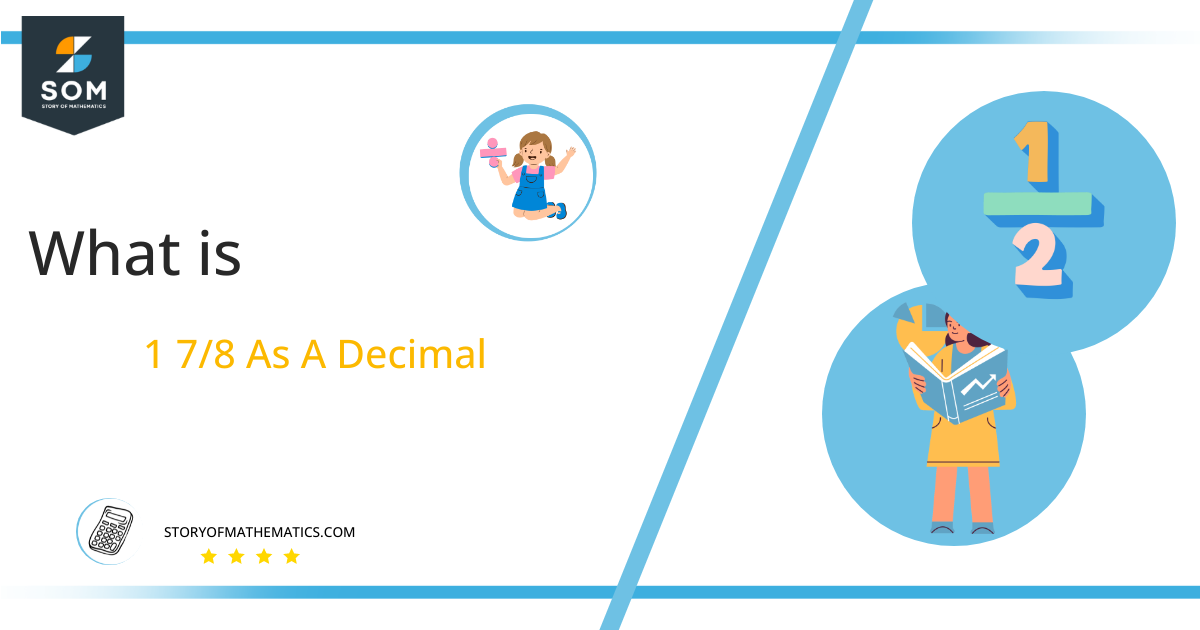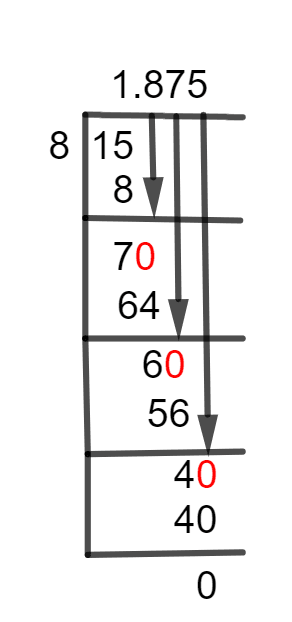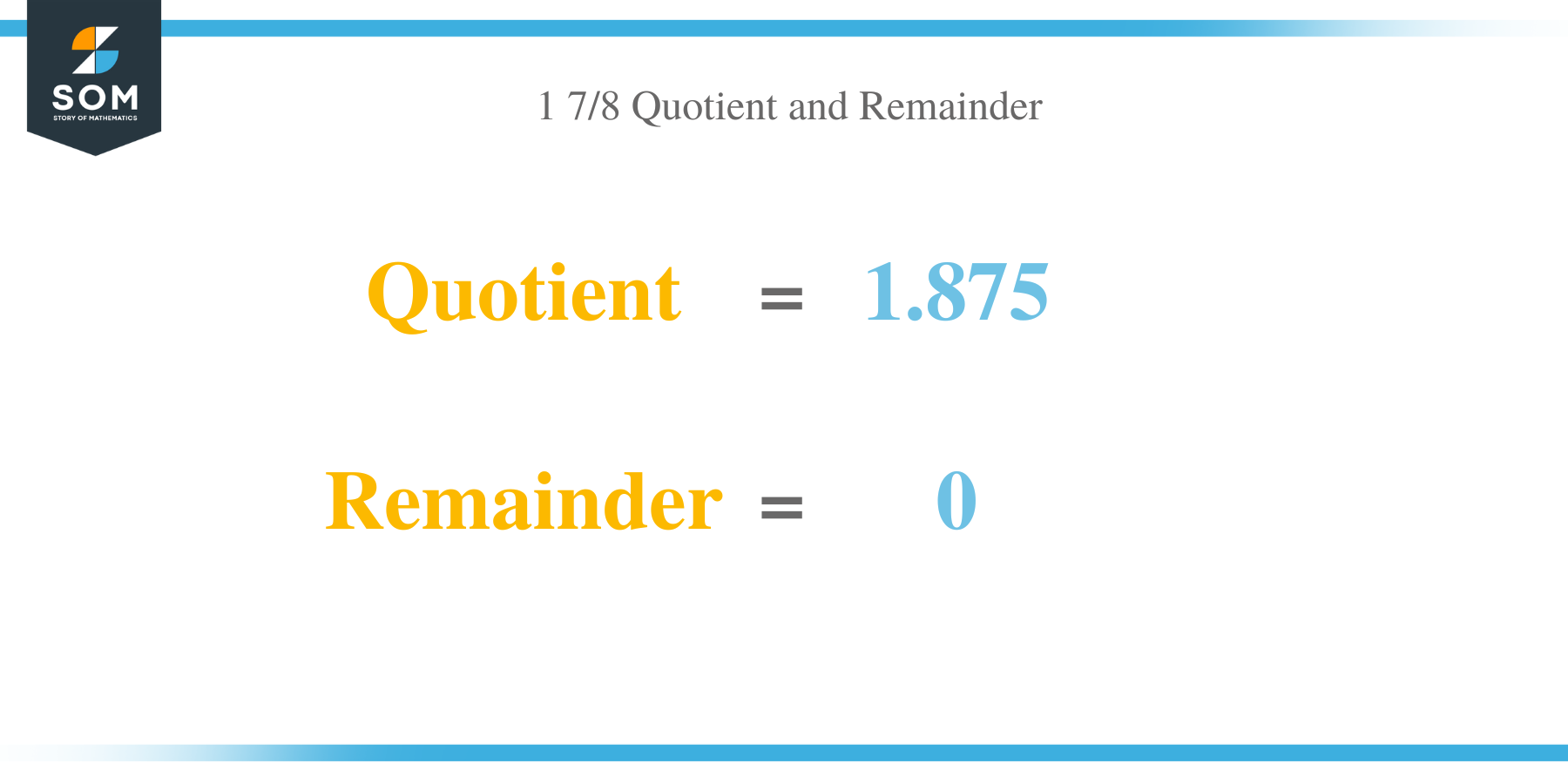What Is 1 7/8 as a Decimal + Solution With Free Steps

The fraction 1 7/8 as a decimal is equal to 1.875.
A Fraction is described as the ratio of its components named Numerator and Denominator, which are separated by a line. A Mixed Fraction is an important type of fraction and is formed by combining a proper fraction with a whole number.
There are different methods to solve fractions. One is the Long Division method, which is discussed here in detail.
Solution
The first step for solving a mixed fraction is its conversion into an improper fraction. We convert a mixed fraction into an improper fraction by finding the product of the denominator and the whole number and then adding this product to the numerator of the mixed fraction.
The value obtained gives the numerator of the improper fraction. In this case, adding the product of 1 and 8, to the 7 gives us 15, which is the numerator of the desired fraction, and its denominator is 8 i.e., similar to that of the mixed fraction.
Thus, the improper fraction is determined to be 15/8. We have to divide 15 by 8. Therefore, 15 is considered a Dividend, and 8 is regarded as a Divisor.
Dividend = 15
Divisor = 8
When we complete the division of two numbers, we get the result in the form of a decimal number. This result is known as Quotient.
Quotient = Dividend $\div$ Divisor = 15 $\div$ 8
Sometimes, we also get some remaining value as a result of division. This value is known as the Remainder.

Figure 1
1 7/8 Long Division Method
1 7/8 can be written in the form of an improper fraction as:
15 $\div$ 8
The mathematical steps of the division of 15 by 8 are stated below.
15 $\div$ 8 $\approx$ 1
Where:
8 x 1 = 8
7 is found to be the remaining value.
15 – 8 =7
Since we get a remaining value that is a lesser number as compared to the divisor, so we cannot proceed without the introduction of a decimal point. To get this decimal point, we multiply the remainder by 10 and then divide the resultant value i.e., 70 by 8.
70 $\div$ 8 $\approx$ 8
Where:
8 x 8 = 64
Remainder is:
70 –64 =6
6 is again multiplied by 10 to get 60, but another decimal point is not required. The division of 60 by 8 is given below.
60 $\div$ 8 $\approx$ 7
Where:
8 x 7 = 56
Now, the remainder 60 –56 =4, which becomes 40 after multiplying by 10.
40 $\div$ 8 $\approx$ 5
Where:
8x 5 = 40
Now, we get no left-over term.
40 –40 =0
So the fraction of 1 7/8 has a decimal value of 1.875, with zero remainders.
Images/mathematical drawings are created with GeoGebra.
